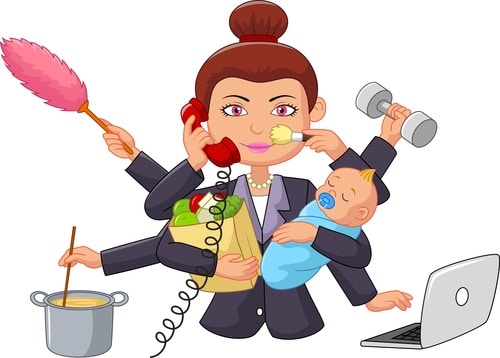Linda here.
I’m the kind of woman who likes to get things done. I can wash clothes, fix dinner and keep track of characters in my favorite Netflix series at the same time. I can even browse Facebook and text my daughter on top of all that. Efficient, right?
Think again.
Dr. Clifford Nass, Director of the Communication between Humans & Interactive Media (CHIMe) Lab at Stanford University did a study on students who were connected to multiple electronic gadgets at the same time. His findings made me wonder just how “efficient” my multitasking really is:
Dr. Nass’s research focused on three areas: •Filtering is the ability to focus on the relevant and ignore the irrelevant.
•Working memory management is the ability to organize information and retrieve it efficiently.
•Task Switching involves the speed at which someone is able to move from one task to another.
In all three areas, Nass found multitaskers performed poorly. In an interview on NPR, he called multitaskers “suckers for distraction and the irrelevant. The more irrelevant information they see the more they’re attracted to it.”
Nass discovered that Stanford freshmen who were chronic multitaskers showed poorer writing skills (using shorter sentences and disconnected paragraphs). His biggest concern was the long-term impact on future generations. Very young children today regularly use electronic gadgets and it’s becoming a preferred means of social interaction. Dr. Nass worried, “We could essentially be undermining the thinking ability of our society and dumbing down the world.”
I for one have learned my lesson. I’m going to focus on completing one task before moving to the next. I might even subscribe to Focus@Will, (scientifically engineered music proven to increase focus and reduce distractions.)
If you’ve ever been at a family dinner where devices were allowed at the table, you know how hard it is to hold a conversation. The video “Dinner at Grandma’s” may have solved that problem.

